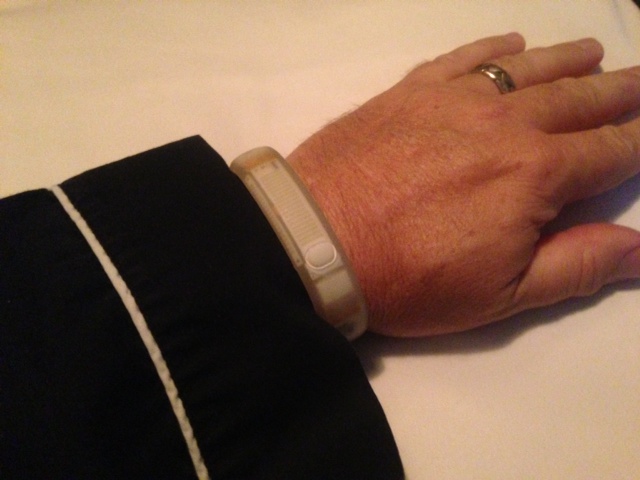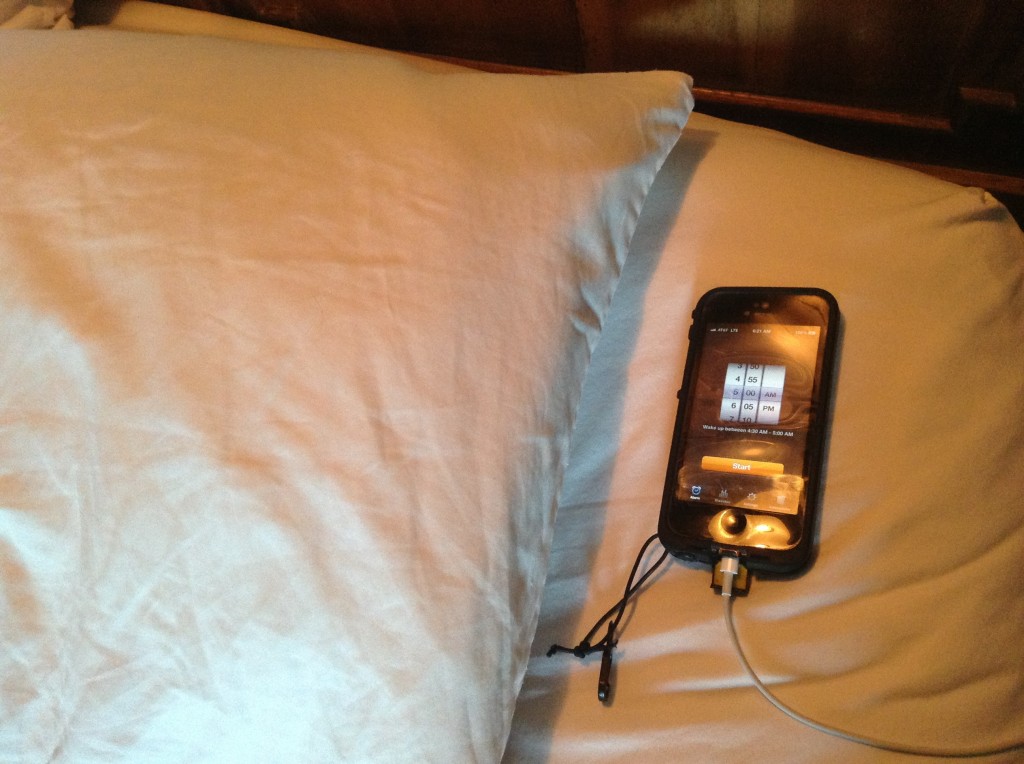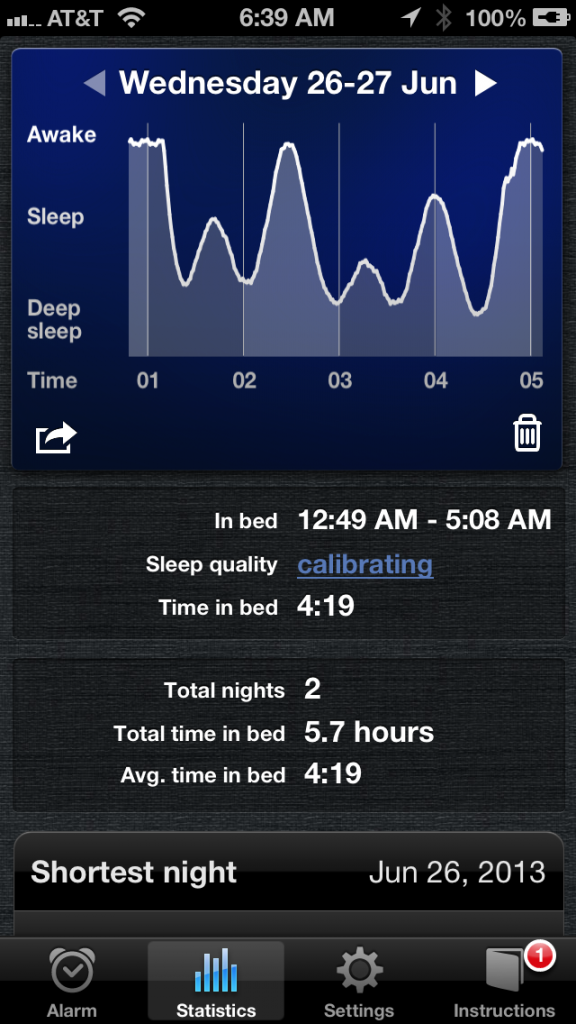We are not getting enough sleep and it is hurting us
The evidence is clear: the less sleep you get the more likely you will develop heart disease, diabetes, obesity, and an obsession with fine coffees (Peet’s Major Dickason’s for me).
Now, devices, wearable ones and your Andoid or iPhone, are able to monitor your movements at night.
I’m a fan of technology and wearable devices. My arm isn’t long enough to wear all the devices that are out there. Of the wearable devices out there, FitBit and Jawbone are the most popular for monitoring nighttime movements.

Here is my Nike Fuel, but it does not monitor nighttime activities. I still prefer it for an activity monitor during the day, and use my iPhone for sleep monitoring. But pretty stylish pajamas, eh?
But if you have an android or an iPhone you don’t need to get a separate arm band because the phone can also monitor your sleep – and nicely wake you up while the phone is recharging. I like the app Sleep Cycle, you simply place the phone next to your pillow and it not only will give you a report of your nighttime activities, but their alarm is very pleasant to wake up to.

You can get apps for the iPhone to monitor your night time movements. I like the app Sleep Cycle
Five Important Habits You Can Change to Improve Sleep:
Measuring bedtime movements can help you decide what activities lead to your best sleep. You can discover:
(1) Does drinking alcohol before you go to sleep lead to a better sleep or a worse one. Is there a difference between one glass of wine and three?
(2) Is the new mattress giving you more or less sleep than the old one? Since most mattress stores give you 60 days to figure this out, here is a way to plot that data.
(3) Do you sleep better if you go to bed an hour later or an hour earlier?
(4) how long does it take you to get over jet-lag? And do some of those remedies people advocate work for you – did that melatonin really help you?
(5) Does what and when you eat change how well you sleep?
That can really change your life! Plus you can find out what works for you. You might discover, for example, that your best time to go to bed is 11 pm not 10 pm. You might find out that the mattress you just bought isn’t working out for you. You might find that eating late isn’t good for you, or eating spicy foods is.
What These Monitors Won’t Tell You
What you will not get from these devices is also important to note: you will not learn if you have sleep apnea. It cannot diagnose it, it cannot tell from any of the graphs.
Other medical issues affecting sleep include: movement disorders – like restless leg syndrome, epilepsy, parasomnias, nightmares, and more. If you have a chronic sleep issue- if you are falling asleep while driving – you need to get a sleep study and treatment.
If your partner moves a lot, it may affect the device – and none of the devices can tell you if you need a new partner. It does make me wonder about waterbeds (remember those?) – but since most of us left those behind with our bell-bottoms, that probably isn’t an issue.
What I learned
I’ve tried the major wearable devices – and they all do a passable job of telling me that I don’t sleep well. Here are a few things that I learned from them:
(a) it takes me three days to get a good night sleep after going 3 time zones East to west. West to East – from China back to Phoenix – two weeks (yes, two full weeks).
(b) On vacation I discovered 8 ounces of wine has no affect on sleep – but just one more decreases sleep a lot.
(c) I don’t sleep well if I eat within three hours of going to sleep.
(d) Mealatonin did nothing for me- either with jet lag or others.
(e) 300 Nike Fuel points before bed provided the best sleep.
Wearable or Non-Wearable
I will post about the wearable activity monitors I tried, but the one I purchased, was the Nike+ FuelBand. It is easy to use, but it does not track sleep movements. For night time movements I preferred the The iPhone app – Sleep Cycle. I preferred the entire Nike+ FuelBand format and reporting, and really liked the iPhone app.

From the other night sleeping -short, but a good night
If some really cool wearable device comes out- like an apple watch – you can bet it will change the game.
Two Important Cautions about Measuring Sleep
(1) These devices don’t really measure your sleep – they measure movements that you make while you are in bed. They work off the simple principle that people, in deep sleep, don’t move too much, but if they wake up, or their sleep lightens, they tend to move. Reasons for waking up are multiple: the bed can be too hard, the room can be too hot or too cold, you might need to go to the bathroom, you might have nighttime reflux (GERD). All of those are important to know and to modify in order to get a good night’s sleep.
(2) As a physician here is a big caution: if you are having trouble sleeping on a consistent and chronic basis, you need a physician and a monitored sleep study. Sleep apnea (narcolepsy) is a treatable sleep condition that afflicts millions of individuals. If untreated it can kill you – like falling a sleep while driving, and leads to a form of heart disease.
For a great review of two sleep wearable monitors see the New York Times article here.
Thank you @pogue (you did what no one on social media has done – changed my mind).
